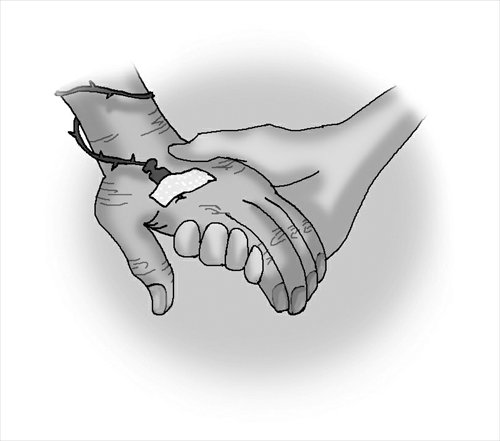
Illustration: Lu Ting/GT
Nobody expected the recent news of a university student's death to become China's latest viral hot-topic, but the emerging details about his tortuous medical treatment that lead to his death have touched the hearts of people across the nation.
Wei Zexi died in April of synovial sarcoma, a rare and incurable form of cancer, at just 21-year-old. Wei himself had been chronicling his battle with cancer on Zhihu, China's version of Quora, claiming that he was suffering the last stage and was desperate to try anything.
Wei's sheer desire to live and not succumb to his illness motivated him to browse paid ad listing on China's monopolistic search engine, Baidu, which directed him to an "immunotherapy" hospital in Beijing that claimed could help. Wei spent 200,000 yuan ($31,000) on their biological therapy treatment, but ultimately died.
We can see from his writings that Wei knew that his disease was incurable. Doctors he had consulted with at several prestigious hospitals confirmed the cruel reality that awaited him. However, the immunotherapy hospital in Beijing where Wei had his final treatment promised they could extend his lifespan another 20 years.
Which leads us to asking, were Wei and his family being rational in their last-ditch attempt to spend so much money on an unproven method of treatment? Or should they have chosen to accept his fate?
In China, the cancer rate is increasing year on year, with a majority of cancers being incurable. The Chinese Anti-Cancer Association reports that 2.11 million people die of cancer every year in China - a quarter of the total number of deaths from cancer in the entire world. As such, many cancer patients and their families face similar situations to that of Wei's: whether or not to pursue costly treatments.
My father was diagnosed with a blood cancer in October, 2011. From the very beginning, a reputed doctor at Shanghai Ruijin Hospital told us that his cancer was incurable and that, quite frankly, most patients lived less than one year.
We told him that we had enough money to support any necessary treatments such as organ transplants, chemotherapy or radiotherapy. Yet, even knowing how much money his hospital could have earned from us, he refused to even admit my father, saying all was futile. He told us to instead just make him feel comfortable at home and supply him with nutritious foods. There was nothing else, he said, we could do.
But as my father's situation worsened at the beginning of 2012, neither he nor us would give up. We went to another Shanghai hospital, famous for traditional Chinese medicine, for a second opinion. The doctor there claimed that he could help cure my father so long as we follow his treatment regimen.
Under that doctor's guidance, we wound up dropping 100,000 yuan. And yet, day by day, we saw our father suffering more and more. He eventually slipped into unconsciousness for nearly a month before passing away early June.
I still don't know whether we made the right decision by attempting to prolong his situation. We were hoping for a miracle, even if it meant sacrificing his comfort and dignity. Even today, I can't say what I'd do the next time a senior family member faces death.
Gu Jin, a doctor specializing in tumors for over 30 years at a renowned Beijing hospital, recently published an article urging the general public that "to give up is also a form of respect for life" and that "letting a patient die with dignity is also a form of medical care."
Euthanasia is a new concept and currently forbidden in China. Seniors are our most valued members of society so we feel a moral obligation to optimize their longevity. Additionally, strict regulations are in place to protect the elderly and the dying from predatory family members hoping to "speed up" their inheritances.
Meanwhile, Baidu's role in accepting payment to prominently rank that immunotherapy hospital where Wei died is still being investigated. But if his death can help reform the dark side of China's profiteering medical and Internet industry, then Wei's death will not be in vain.
The opinions expressed in this article are the author's own and do not necessarily reflect the views of the Global Times.

